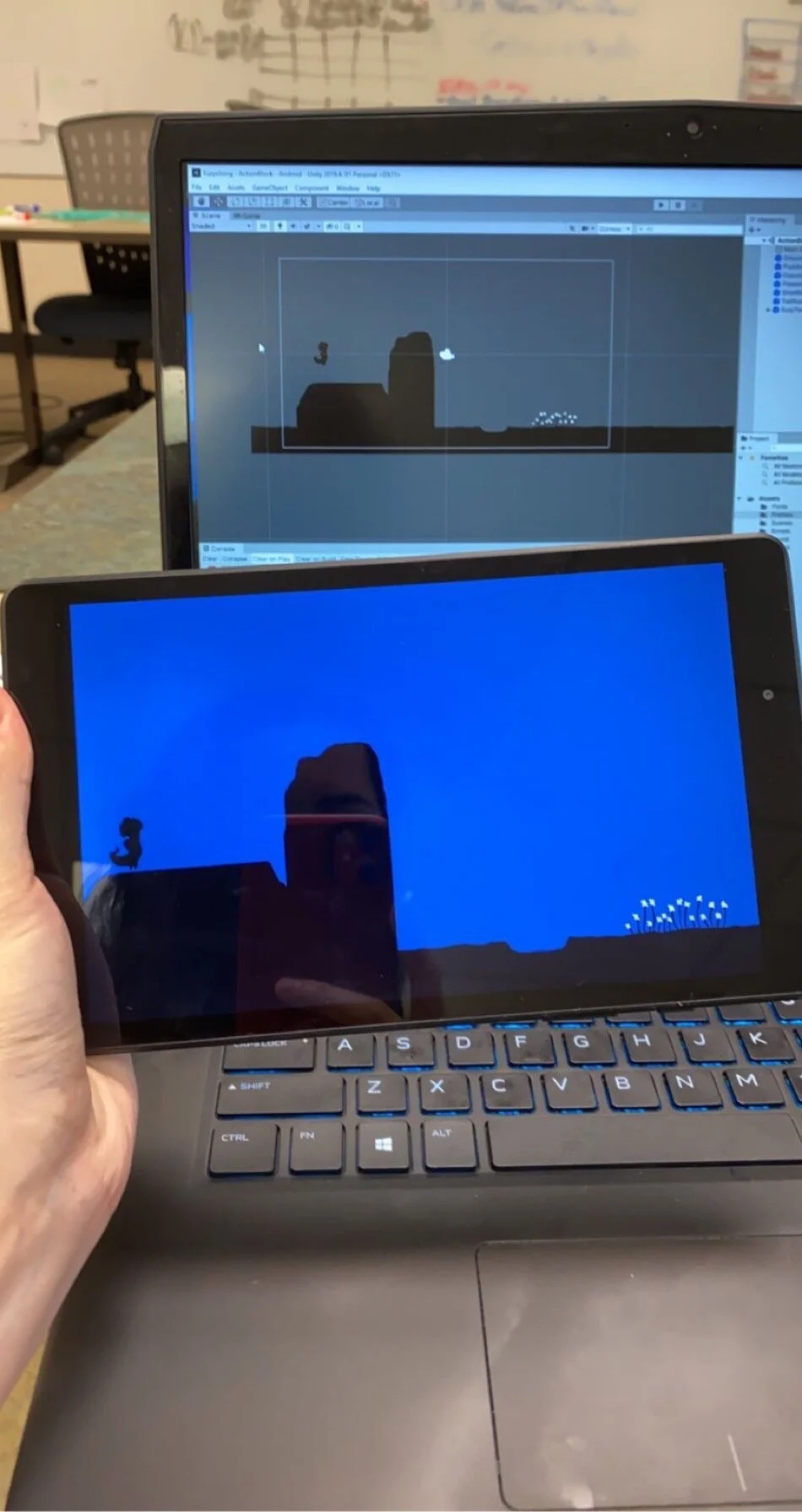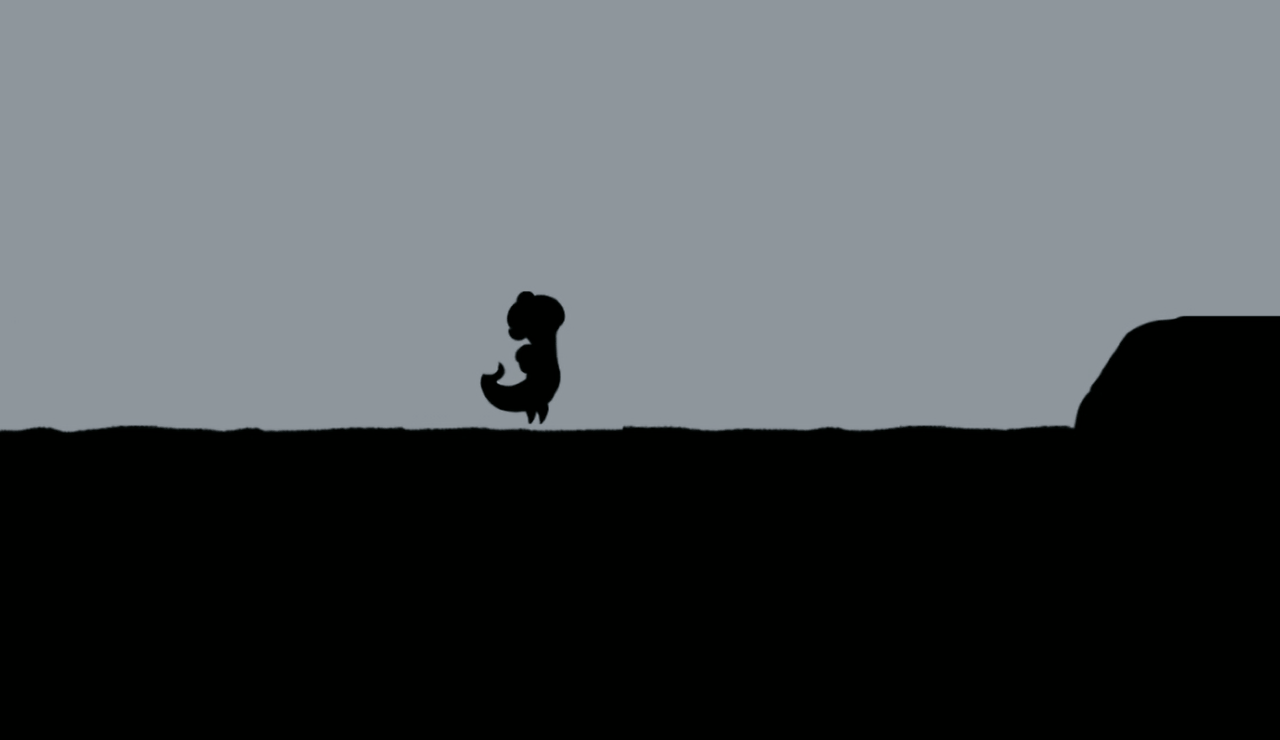
Eury’s Song
Level Designer
October 2020 - December 2020
Eury’s Song was created by seven developers over a span of 2.5 months at SMU Guildhall as part of their Team Game Project curriculum.
At SMU Guildhall, the curriculum includes three Team Game Project courses, where students learn about interdisciplinary collaboration by creating a game from concept to release. The first project is a 2D mobile game built in Unity by level designers, artists, and programmers. Production students such as myself actually start in a sub-specialization of their choice so that they can learn the most important part of project management: teamwork, and how much it is to ask someone to develop a game.
My contributions:
Shared responsibilities in task tracking and documentation for game design and playtests, ensuring that the team had a clear understanding of project work
Managed sprint planning and task estimation, keeping the game’s scope realistic for the time frame we had available
Oversaw discussion and creation of level design guidelines and narrative, giving the game consistency across levels
The Idea
All screenshots and photos are of Level 1, Styx, which I was responsible for designing and polishing.
Eury’s Song explores what happens to Eurydice after Orpheus fails in his attempt to bring her back to life. Left at the opening to Hades, she makes her way through the underworld to the Elysian Fields to earn eternal peace. As she traverses the dangerous terrain, she collects golden apples to protect her from harm and pieces of the melody Orpheus sang for her to remember him by.
For the gameplay, the two other level designers and I worked to develop action blocks of interesting interactions the player could have with the environment. The three of us stitched these action blocks together to form the first level, Styx, which I was responsible for polishing. This collaboration resulted in our strongest, most interesting level in my opinion. Initially, we sketched these action blocks on paper and then combined them on a whiteboard, which made implementing the level in Unity much easier. I feel that if we’d continued this process with the other two levels as well, they would’ve been stronger as well.
That said, our other two levels, Asphodel and Elysian Fields, are still fun in their own right. I worked very closely with the other two level designers, giving them playtesting feedback and discussing with them how the narrative would flow across the game. We worked together to determine how to escalate the game’s difficulty at the right speed, and how to incorporate more elements from Greek mythology into the narrative.
Collaboration made our game much stronger in other ways as well. I worked very closely with our environment artist, Julian Green, throughout development. As the level designer, I implemented his art assets in engine, like the particle effect of skulls floating out of our water hazard. Julian and I would hand the level off to each other in turns as we worked to create a moody, atmospheric world appropriate to the Styx River of Hades. He implemented the background assets and many of the foreground details—after he’d explained his process to me, I was able to fill in some of the more barren areas while he polished the other levels.
The Gameplay
Originally, our 2D platformer would have a “lyre hero” minigame at the end of each level. The player needed to collect the musical notes in order to reach the minigame—without it, their song would be incomplete, and they’d need to start over. However, we were never able to prove the rhythm gameplay, and had to cut it to focus on the platforming.
Learnings
While I’d been a part of several game jams before joining Guildhall, this first Team Game Project was my longest collaboration with other game developers. By far, my most important lesson was the importance of communication, mutual respect, and curiosity as we went through the almost three months of development. I also learned how collaborating with multiple different designers on one level, rather than giving an entire level to a single designer, can create a fun, stong gameplay experience for players.
While I didn’t do much production work on this project, I did begin to learn the basics of Scrum and Agile, which gave me a strong foundation as I began my production education on my next game, Snowpainters.
%20%E2%80%94%20Nooka%20Dascalu_files/Headshot_Cartoon_transparent.png)







